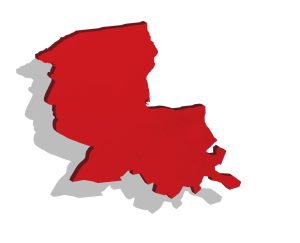Fixing homeless problem requires respect, humanity
April 5, 2016
This is an opinion article and does not necessarily reflect the views of The Tulane Hullabaloo.
New Orleans, like many other cities, has a significant homeless population. Following Hurricane Katrina, the number of people without homes skyrocketed. Even given the work of advocacy groups, there are over 1,000 New Orleans civilians still without homes. With the closure of the Pontchartrain underpass, a common gathering area for homeless people, many will be left without a safe, warm area to gather. While it seems like a positive move towards “cleaning up” the city, it has not been handled in a way that respects the humanity and livelihoods of the city’s homeless population.
It was only last August that the New Orleans homeless population was reduced to below pre-Katrina levels. This was due to work from groups like Unity of Greater New Orleans, an organization dedicated to helping and providing for homeless individuals. Unity has also helped get veterans off the streets, reducing the number to 27 in 2015. This progress is impressive and a great move towards bettering human lives. The question, however, is why do so many still choose to avoid shelters?
There are several answers, mostly depending on the individual in question. For mentally ill or physically disabled individuals, it is often the case that overburdened family members cannot or do not wish to care for them. This reduces their options to abandoned buildings or underpasses. This was especially true for post-Katrina New Orleans, when rent prices skyrocketed and demanded the majority of people’s paychecks.
Otherwise, individuals suffering from mental illness might avoid the large crowds and pressures of shelters. Cramped conditions, bed bugs, theft and other threats may also keep people from visiting shelters.
New Orleans’ homeless problem has appeared to have been reduced significantly in the past decade, but its per capita rate of homelessness is still one of the worst in the country. With 49.6 homeless people per 10,000, the city beats out Baltimore, Detroit and Chicago. This concerning data points out the real issue in the manner that the city has closed down the Pontchartrain underpass.
The closure was announced on March 2 by the New Orleans Building Corp. By April, there were plans to begin fencing off the area, to develop it into privately managed parking lots. The technical reasons make sense: the space would provide an additional source of revenue to the city and the camps inhabited by homeless individuals have incredibly poor living conditions, infested by vermin and potential disease.
On March 18, however, a sweep was conducted to remove the people and property below the underpass. Unattended tents and bags were removed from the scene and the people living there escorted away. Despite prior warning and the presence members of advocacy groups to offer resources, the heavy-handedness of the sweep was dangerous. The people living there had reasons for not seeking out shelter services and now must find somewhere else to reside. Until appropriate shelter or housing services can be provided, all this has done is dispersed the homeless population throughout the city.
Unfortunately, this is not a simple situation to resolve. Breaking up the underpass camps is appropriate for the health of the people there and the overall quality of the city. Still, members of advocacy groups should have been working with the community there to move them out at their own pace. They should have provided counseling services and helped planning so that the people who chose not to seek shelter services would have some kind of support. Instead, those living at the underpass were treated as animals or children rather than actual adult humans.
It is likely that the fencing will continue as planned, though it would not be surprising to find that a number of homeless individuals simply returned after the sweep. New Orleans can still act in the interests of these people, returning to the site to offer support services as they are relocated. To me, it feels as if the quickest, cheapest option was chosen. This is unacceptable in the context of real human lives. In the future, the city must do what it can to respect these individuals and their needs.









Leave a Comment